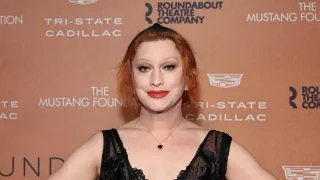
4 hours ago
Cambridge Dictionary Embraces Internet Slang: ‘Skibidi,’ ‘Tradwife,’ and ‘Delulu’ Reflect Changing Culture
READ TIME: 3 MIN.
The Cambridge Dictionary, one of the world’s leading authorities on the English language, has officially added more than 6,000 words to its lexicon this year. Among these new entries are ‘skibidi,’ ‘tradwife,’ and ‘delulu’—three terms that have surged in popularity through online platforms such as TikTok, YouTube, and Instagram, reflecting the rapid evolution of internet and social media culture . This expansion of the dictionary underscores how digital communities and pop culture have become major forces shaping the language used across generations and identities .
Colin McIntosh, lexical programme manager at Cambridge Dictionary, commented, “Internet culture is changing the English language and the effect is fascinating to observe and capture in the dictionary” . This year’s additions are drawn from the Cambridge English Corpus, a database of more than two billion words, tracking real-world usage across diverse contexts and communities.
- Skibidi: Originating from a viral YouTube series called ‘Skibidi Toilet,’ the term has taken on a playful, nonsensical meaning, often used in online jokes or memes. Its entry into the dictionary reflects the word’s widespread use among young people and meme enthusiasts, and its function as a cultural touchstone for internet humor .
- Delulu: A contraction of ‘delusional,’ ‘delulu’ is used to describe someone who believes things that are not real or true, typically as a conscious choice. The word has been popularized by social media influencers and even entered political discourse, as noted by Australian Prime Minister Anthony Albanese’s use of the phrase “delulu with no solulu” (delusional with no solution) in parliament .
- Tradwife: Short for ‘traditional wife,’ this term refers to a woman who embraces conventional domestic roles—cooking, cleaning, childcare—often sharing her lifestyle on social media. The dictionary notes that ‘tradwife’ has gained traction online, especially among influencers who showcase traditional gender roles .
For LGBTQ+ communities, the evolution of language is both a reflection of cultural shifts and a tool for greater visibility. The inclusion of terms like ‘lewk’—popularized by RuPaul’s Drag Race and defined as a distinctive, often impressive style or outfit—demonstrates the influence of queer culture on mainstream language . ‘Lewk’ is now broadly used in fashion spaces and among LGBTQ+ individuals to celebrate self-expression and identity.
Similarly, internet slang like ‘delulu’ and ‘skibidi’ can serve as shared cultural references within LGBTQ+ groups, where humor, irony, and creative language play important roles in community-building and resisting mainstream norms. The Cambridge Dictionary’s recognition of these words affirms their relevance and staying power across diverse populations.
However, the addition of ‘tradwife’ has prompted discussion about gender roles and representation. While the term’s visibility may help some individuals find community, it also raises questions about the portrayal of women’s choices and the potential reinforcement of heteronormative stereotypes. LGBTQ+ advocates note the importance of ensuring that new language entries do not marginalize or erase non-traditional families and relationships, and that dictionaries provide context for terms that may be controversial or contested .
The Cambridge Dictionary’s annual update is more than a catalog of new expressions—it is a testament to the power of language to capture societal change, celebrate diversity, and foster inclusion. By documenting words from LGBTQ+ communities, social media subcultures, and global movements, the dictionary helps make visible the many ways people define themselves and relate to the world.
As internet-driven slang continues to shape the language, experts underscore the importance of linguistic inclusivity and representation. “We only add words where we think they’ll have staying power,” McIntosh said, highlighting the rigorous process involved in selecting new entries . The Cambridge English Corpus’s data-driven approach ensures that the dictionary reflects real usage—across genders, sexual orientations, and social backgrounds.
For LGBTQ+ readers and allies, this year’s additions are a reminder that language is dynamic, shaped by communities who use it to challenge norms, express identity, and build solidarity. The recognition of slang and terms arising from queer spaces and digital platforms signals a future in which dictionaries are not only repositories of standard speech, but living documents of cultural transformation.






